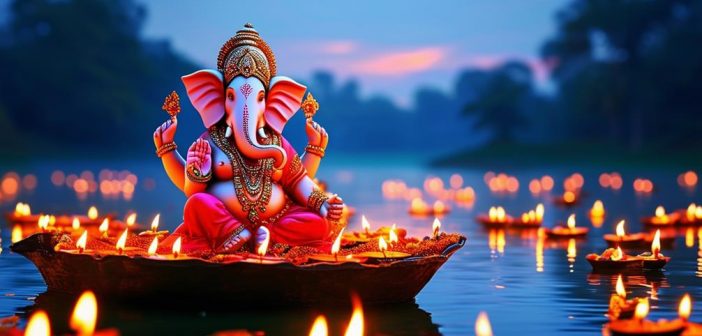Shravan, the fifth month in the Hindu lunar calendar, holds immense spiritual significance for Hindus worldwide. Characterized by austerity, devotion, and a deep desire for spiritual growth, this month is dedicated to Lord Shiva, one of the primary deities in the Hindu pantheon.
The Hindu calendar, a complex system combining lunar and solar cycles, is deeply intertwined with Hindu culture and spirituality. Each month carries unique importance, but Shravan stands out as a period of intense devotion and renewal.
Devotion to Lord Shiva: Shravan is profoundly linked to Lord Shiva. Legend has it that on a Shravan Somwar (Monday), Lord Shiva accepted Parvati’s unwavering devotion after her rigorous penance. Since then, Mondays of Shravan have been considered highly auspicious for worshiping Lord Shiva. Devotees offer water, milk, and bilva leaves to Shiva lingams, symbolizing their deep devotion.
Austerity and Purification: Shravan is a time for introspection and self-purification. Many Hindus observe strict fasts, abstaining from meat, fish, eggs, and sometimes even grains. These austerities are believed to purify the body and mind, bringing individuals closer to their spiritual core.
Charity and Service: Giving back to society is a crucial aspect of Shravan. Hindus engage in charitable acts, feeding the poor, and performing selfless service. It is believed that good deeds performed during this sacred month are multiplied manifold, leading to spiritual upliftment.
Festivals and Observances in Shravan: Shravan is filled with festivals and observances, each carrying its own spiritual significance:
Shravan Somwar: As mentioned earlier, Mondays of Shravan are dedicated to Lord Shiva. Special pujas and abhishekams are performed in Shiva temples, and devotees observe strict fasts and perform acts of charity.
Nag Panchami: Celebrated on the fifth day of Shravan, Nag Panchami honors snakes, considered sacred in Hindu mythology. People worship snake deities, offering milk and flowers as a mark of respect.
Raksha Bandhan: While primarily a festival of sibling love, Raksha Bandhan also holds significance in Shravan. Sisters tie rakhis (sacred threads) on their brothers’ wrists, praying for their well-being.
Onam: Though primarily celebrated in Kerala, Onam, a harvest festival, falls during Shravan. It is a time of joy and festivity, marked by elaborate floral carpets and sumptuous feasts.
The Spiritual Journey in Shravan: Beyond rituals and festivities, Shravan is a period of profound spiritual introspection. It is a time to connect with one’s inner self, let go of negative emotions, and cultivate qualities like compassion, humility, and forgiveness.
By following the customs and traditions of Shravan, Hindus aim to purify their souls, strengthen their faith, and attain spiritual liberation. The month serves as a reminder of life’s cyclical nature and the importance of living a virtuous life.
Shravan in Modern Times: In today’s fast-paced world, Shravan offers a much-needed respite from materialistic pursuits. It invites individuals to reconnect with their spiritual roots and find solace in the timeless wisdom of Hinduism. While traditional practices may evolve, the core essence of devotion, austerity, and service remains constant.
Regional Variations: While the core elements of Shravan remain consistent across India, regional variations in customs and traditions are evident. Some regions observe specific fasts or rituals, while others have unique ways of celebrating the festivals. However, the underlying spirit of devotion and spiritual growth unites Hindus nationwide.
Conclusion: Shravan is more than just a month in the Hindu calendar; it is a transformative journey of self-discovery and spiritual elevation. By embracing the essence of Shravan, individuals can enrich their lives, strengthen their faith, and contribute to a more harmonious and compassionate society. As the world faces challenges, the timeless wisdom of Shravan offers a beacon of hope and guidance.





